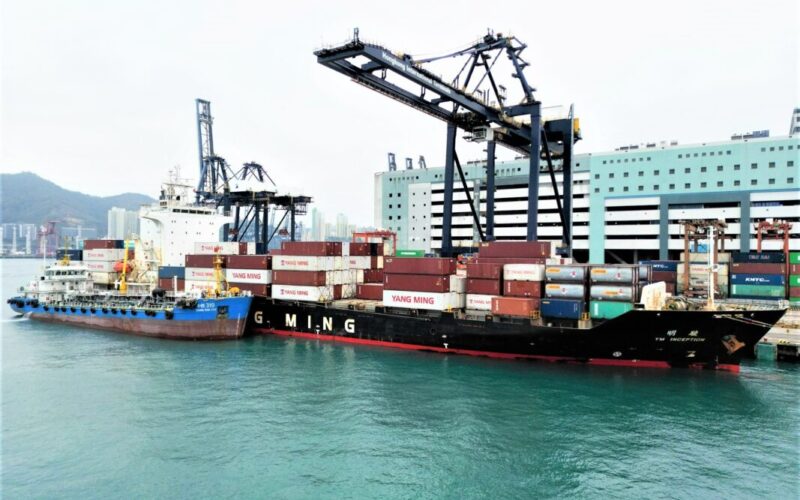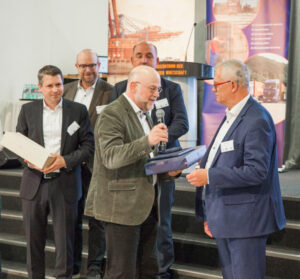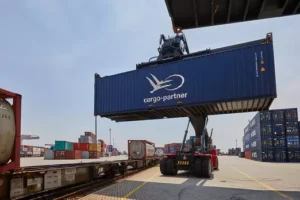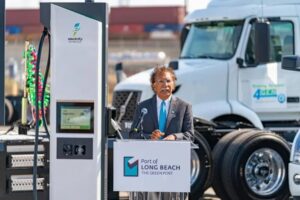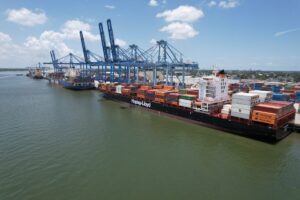Yang Ming Marine Transport Corp. (Yang Ming) has begun using sustainable biofuel in its fleet, beginning in Hong Kong and Singapore.
In addition to improving energy efficiency in fleet management and using green energy at land-based offices, Yang Ming plans to include biofuel in its yearly fuel use.
Yang Ming hopes to achieve a year-on-year (YoY) decrease in emissions by using certified biofuel and providing consumers with more environmentally friendly transportation services.
Biofuel adoption began with Yang Ming’s 1,805 TEU containership, YM Inception, and 6,600 TEU containership, YM Masculinity.
These vessels are currently deployed on the JTC route from Japan to Taiwan, Hong Kong, Vietnam, and Thailand, as well as the CGX service from the Far East to the Middle East.
In collaboration with energy providers Chimbusco Pan Nation Petro-Chemical Co., Ltd., and KPI OceanConnect, both vessels have been bunkered with B24 biofuel, certified by the International Sustainability & Carbon Certification (ISCC).
This sustainable fuel comprises a blend of Fatty Acid Methyl Ester (FAME) and Very Low Sulfur Fuel Oil (VLSFO).
By embracing biofuels, Yang Ming can achieve a substantial reduction of approximately 20 per cent in carbon emissions compared to conventional fuel oil.
READ: Yang Ming releases financial report for H1 2023
Yang Ming Chairman, Cheng Cheng-Mount, stated: “Confronted with future regulatory requirements and the challenges of decarbonisation, the adoption of biofuel signifies a significant milestone for Yang Ming as it transitions towards achieving net-zero carbon emissions.
“Despite the associated higher costs, Yang Ming plans to gradually expand the use of biofuel in 2024, continuing research and investment in new alternative energy sources to realise a 20 per cent reduction in total carbon emissions by 2030 compared to the levels in 2018.”
Yang Ming has reportedly already adopted a number of energy-saving and emission-reducing initiatives on its fleet, in addition to the use of biofuel.
READ: Yang Ming reports stable third-quarter revenues
These solutions include upgrading older vessels for greater energy efficiency, using big data analysis to improve vessel performance, and applying route optimisation algorithms.
Furthermore, the company anticipates the delivery of five newly constructed 15,500 TEU LNG dual-fuel container ships beginning in 2026.
This breakthrough is expected to help reduce the maritime industry’s environmental effects while also promoting sustainable growth.

